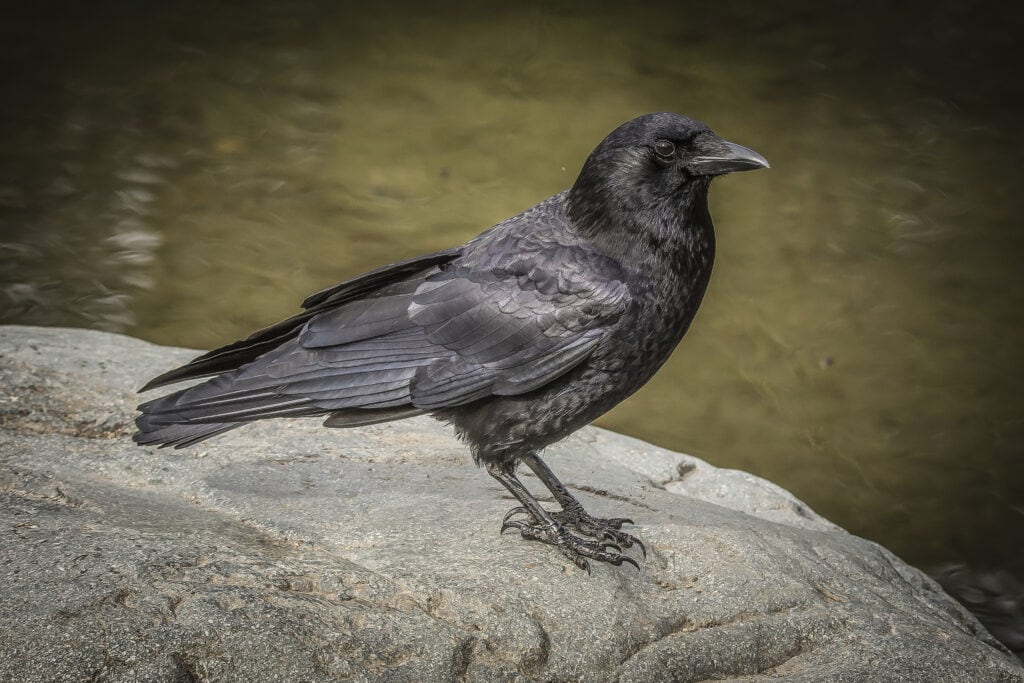The impressive intellect of crows and other members of the corvid family has been the subject of speculation, study, and awe for decades. From famous studies that proved crows could use tools or recognize human faces, to more recent studies in which crows have proven themselves capable of outperforming primates on certain logic tests, the apparent intelligence of crows continues to exceed expectations. As someone who monitors and reports on bird-related news, I can attest to the fact that new studies unraveling some previously unreported aspect of corvid genius seem to emerge every year.
Related Article: Species Spotlight: The Mississippi Kite
The latest of these is a study that examines the difference in brain activity between skilled and unskilled American Crows. Tool usage is one of the most significant markers of intelligence that we use to understand animal cognition. It was once believed to be an exclusively human talent, but a limited contingency of animals, many of whom are primates and thus cousins to humanity, have proven capable of using tools. Crows are among this elite group and have been recorded fashioning tools in the wild, solving complex puzzles using multiple tools in stages, and even combining several pieces to invent compound tools for problem-solving.
Now, this recent study suggests that the experience of tool use is different in highly proficient birds when compared to their inexperienced counterparts. The study measured the brain activity of 16 wild American Crows when faced with the famous “Aesop’s Fable” task. This task, often used as a test of intelligence for birds, requires the animal to drop stones into a tube of water to raise the water level and retrieve a floating treat. While only a few of the birds in this study managed to master the task, the findings were still significant.
Experienced and skilled crows were found to have increased brain activity in the regions associated with motor learning, tactile control, and memory. Their less skilled counterparts activated the portions of their brains associated with sensory processing and higher order thinking. Interestingly, though perhaps not surprisingly, the crows that were found to be proficient and skilled at this activity were the older ones. The group that mastered the task were all adults. Sex was noted to be one of the biggest predictors of success amongst adult birds, with adult females significantly outperforming males at this task. Adults who mastered the task were also found to be in slightly better physical shape on average and to be more confident and less nervous in temperament.
The conclusion of the study suggests that highly proficient crows, much like human athletes, may activate sections of their brain that allow them to visualize and rehearse their future actions in order to solve problems quickly and effectively, whereas unskilled crows simply respond to the stimuli in front of them — many of the less skilled crows ignored the stones and attempted to reach the treats without solving the puzzle. Unskilled crows were also forced to use the portions of their brains associated with higher order thinking, whereas the experienced crows no longer needed to think through the puzzle in this way and could devote their brain power to memory and tactile control.
Popular Article: Species Spotlight: The Greater Roadrunner

